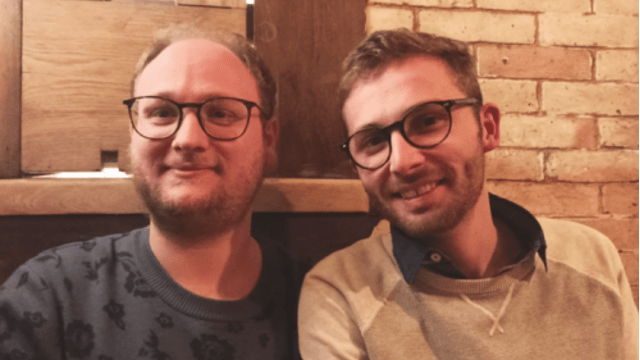Objective Aggregation, our alumni became teachers
Jean-Xavier Bardaud and Damien Tocqueville are two former students of the Chemistry Department at the ENS Paris-Saclay. Both have chosen to pursue teaching careers, and they have just published their second chemistry textbook aimed at students in preparatory classes.
Alumni of the chemistry aggregation preparation program at the ENS, which they completed in 2020, Jean-Xavier Bardaud and Damien Tocqueville have both become teachers. Jean-Xavier Bardaud became a teaching assistant in the aggregation preparation program at ENS Paris-Saclay, while Damien Tocqueville teaches in the Paris academy.
Driven by a desire to share knowledge and support students in preparatory classes for the chemistry aggregation, they have recently published their second chemistry textbook, reflecting on their academic journeys.
Could you outline your academic journey before/during/after ENS Paris-Saclay?
Before joining ENS Paris-Saclay, we both completed two years of preparatory classes for engineering schools (Physics and Chemistry, Engineering Sciences - PCSI then Physics and Chemistry - PC): at Lycée Gay-Lussac in Limoges for Jean-Xavier and at Lycée François 1er in Le Havre for Damien. While Jean-Xavier joined the program through direct selection as a student at ENS, Damien entered through the physico-chemical molecular magistère—a program that combines a reinforced chemistry L3 followed by a master's degree in the Frédéric Jolliot-Curie track. With a keen interest in teaching, we both joined the Master 2 program in Higher Education Teaching - M2FeSUP in the Chemistry Department at ENS Paris-Saclay to prepare for the external chemistry aggregation exam. After obtaining the aggregation, we pursued specialized master's degrees in physico-chemistry, Jean-Xavier at Université Paris-Saclay and Damien at Sorbonne University.
What is the focus of the textbooks you have published?
The textbooks we have published are aimed at students in preparatory classes for engineering schools (CPGE). We co-authored the first textbook with exercises and solutions specifically designed for the PCSI class, published by Ellipses. Our goal was to provide a comprehensive collection of solved exercises to prepare students for oral exams in CPGE. The second textbook, published by Dunod and coordinated by Matthieu Émond, a chemistry professor in PC* at Lycée Sainte Geneviève (Versailles), is intended for the PC class. It provides concise lessons and a set of exercises for each part of the curriculum. We met Matthieu during our year of preparation for the aggregation when he was a lesson corrector, and he invited us to join the author team for this textbook.
What advice would you give to a chemistry department student considering preparing for the aggregation?
We would advise them to persevere and not get discouraged. Preparing for the aggregation is challenging, but it is an extremely rewarding experience: it allows you to review your knowledge and gain a deeper understanding of physics and chemistry from the ground up. Ultimately, obtaining the aggregation is worth it: teaching is a fascinating profession, and passing this exam opens many doors for those interested in pursuing a career in education.
What is your experience in teaching?
Our teaching experiences began during our preparatory classes when we started tutoring. After obtaining the aggregation, to continue sharing our knowledge, we became involved in writing textbooks for preparatory classes. Now, teaching is part of our daily lives—Damien as a teacher at Rodin High School (Paris) and Jean-Xavier as a teaching assistant in the Chemistry Department at ENS Paris-Saclay as part of his doctoral studies. Additionally, Damien has been responsible for the international chemistry olympiad training program in Paris for the past two years, and Jean-Xavier has been involved as a teacher in various areas.

Comments0
Please log in to see or add a comment
Suggested Articles



